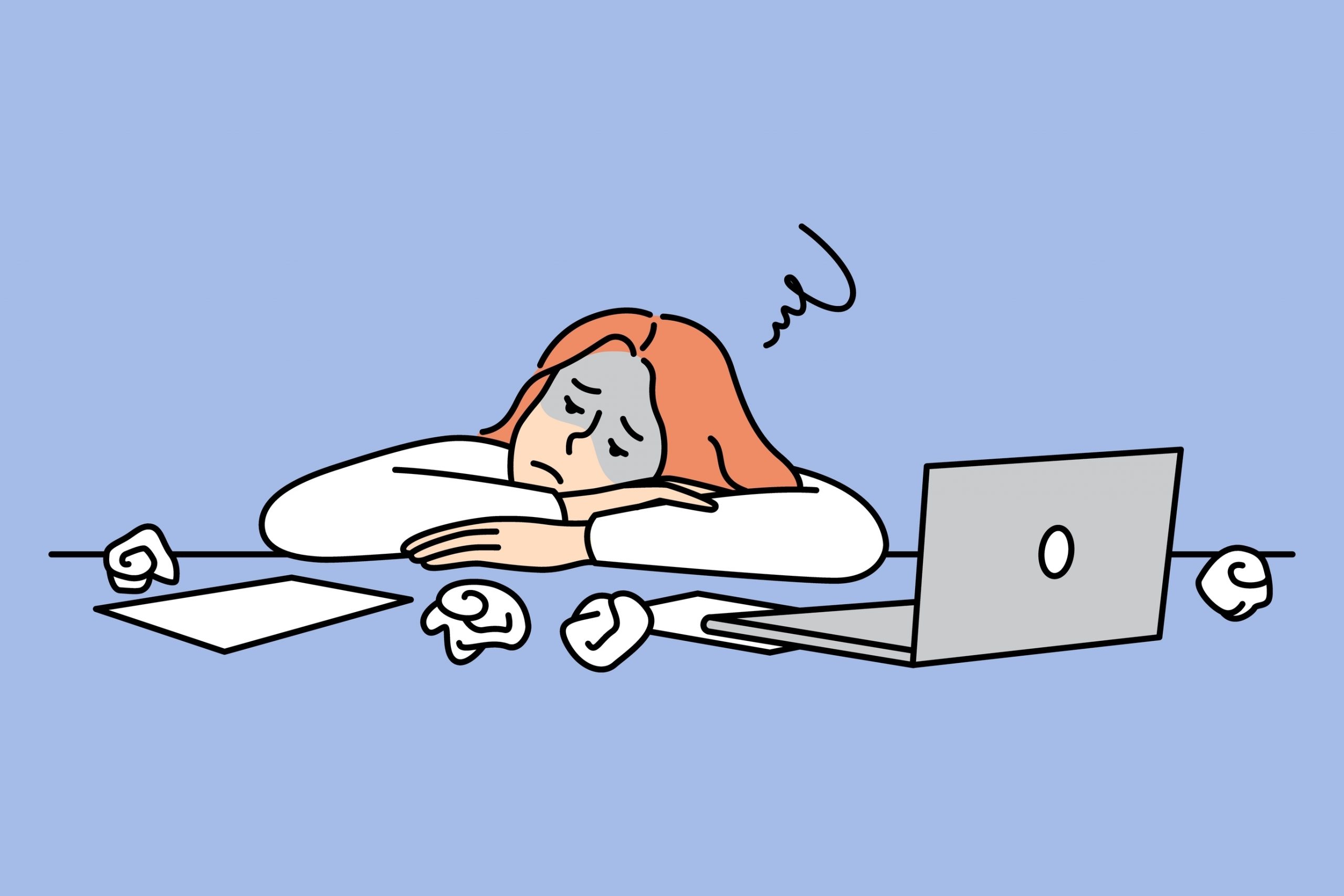Although work schedules and stress can interfere with sleep, the opposite is true. You are aware that lack of sleep can negatively affect work performance if you have ever dozed off at your desk or during a crucial meeting. Lack of sleep can make you groggy, less imaginative, and more difficult to concentrate on challenging tasks.
It can become tiresome to work through the night to get more done the next day to make up for lost productivity. Fortunately, knowing how sleep affects productivity at work can equip people with the knowledge they need to break this habit. Though it can be difficult at first, drawing a line between work and personal life is a crucial step towards healthier sleep and more reliable work performance.
Sleep Deprivation’s Effects on the Work
Your capacity to function is severely hampered by sleeping less than eight hours a night for only a few nights. According to experts, sleep loss in this manner is similar to surviving without sleep for one or more nights.
- You Are Prone to Making Mistakes:
More than merely being fatigued is among the symptoms of sleep deprivation. You might feel agitated or have trouble remembering things or thinking clearly. In actuality, a lack of sleep impairs cognitive performance. Your performance at work may suffer since you are less aware and slower to react as your cognitive abilities decline. Additionally, you can find it challenging to decide and be more prone to making mistakes. People who suffer from insomnia have trouble concentrating and may even find it challenging to carry out their professional duties.
- It Increases the Risk of Injuries and Mishaps:
Lack of sleep might also result in mishaps or injuries at work. Sleepy employees have a 70% higher risk of being engaged in a workplace accident than those who are not tired. Unfortunately, lack of sleep might make someone feel overconfident in their talents. They might believe they can drive when they shouldn’t, for instance. Increased absenteeism and financial losses are two more sleep deprivation consequences on job performance.
- Increased Anxiety and Frustration While at Work:
People who work while being sleep-deprived may become more agitated, enraged, and stress-prone. Emotional responses are increased in stressful or unpleasant circumstances, which causes overreacting at the wrong moments. Workplace tension and irritability might then spill over into personal life, making it more challenging to get to sleep. Chronic sleep deprivation increases the likelihood of more severe mental health issues, such as anxiety and depression, making working productively harder over time.
How to Get More Restful Sleep
You may do various things to enhance your sleep if lack of sleep makes you worry about how well you function at work.
- Your body can establish a regular sleep cycle if you wake up and go to bed at the same time each day. You can also get better sleep by engaging in daily exercise or outdoor activities. Avoid working out too close to bedtime.
- Take into account your diet in the hours before night as well. Both nicotine and caffeine are stimulants that have the ability to keep you awake. Avoid eating large meals and drinking alcohol because they can keep you awake at night.
- Avoid using devices like TVs, cell phones, and computers that emit artificial light in the hour before bed. By stimulating the brain, these lights can help you stay awake longer. Try a calm, soothing pastime as an alternative. Consider taking a warm bath, meditation, reading, or listening to soft music.
Parting Thoughts:
If you feel that your mattress is the real culprit that is not letting you have a restful sleep at night, we would suggest getting your hands on the best mattress in Pakistan. There is a variety of options available that you will surely come to love.








